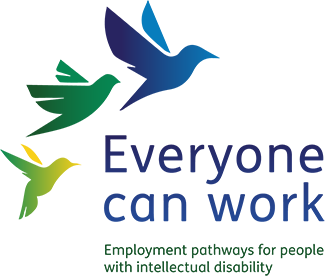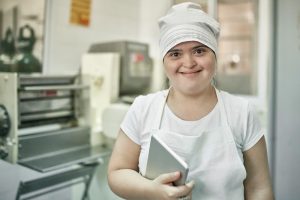This section explains how National Disability Insurance Scheme (NDIS) funding can help you find and keep a job.
NDIS funding can help you with many kinds of employment goals. This might include things like getting support to:
- Find out the kind of work you would be good at. Discovery can help if you aren’t sure what you want to do.
- Find a job that suits your skills and interests. Customised employment can help you get a job that’s a good fit for you.
- Start up and run your own small business. This is often called a microenterprise.
- Work in your family’s business, if that is your goal. This might include help from a support worker to build your skills and everyday help to do your job.
- Get extra ongoing support at work. This can be helpful if you work with a Disability Employment Service (DES) but need extra support. This could be a support worker to give you the extra help you need.
- Change to a different job. Like if you already work in an Australian Disability Enterprise (ADE) but would like to change to a job in open employment. Customised employment is a way to help you work out what you want to do and find a job.
- Keep working in an ADE. The NDIS pays for your supports in the ADE, so you have more choices and can make changes.
You need to be over 15 years old to get NDIS supports for employment. This includes if you’re a high school student, who can get NDIS supports to help you transition from school to work, as well as if you have left school.
As an NDIS participant, you can get support for employment the same way as you get other kinds of NDIS support. You will need to have goals in your plan that relate to employment so that employment supports can be put in your plan. A long-term goal could be to have a job. A short-term goal could be something that relates to what you need to do as a step on the way to this goal.
It’s a good idea for you to think about what you want and write down your goals. Here are some things to take to the NDIS planning meeting:
- Your list of goals, including your employment goals.
- A planning workbook to work out your goals, if you’ve used one.
- Any training certificates, school reports, and work experience or volunteer work records and references.
If it’s a long time until your next scheduled NDIS meeting, you can ask the LAC or Planner to apply for an unscheduled plan review so you can add your employment goals. You may need to provide evidence that your circumstances have changed.
The important thing about using the NDIS for employment is that the supports in your plan are designed just for you. You decide what your employment goals are, and you are in charge of how you use the supports in your plan. This includes choosing who provides your supports and what you get help with. You don’t have to fit into a program or share supports with other people.
There are also other types of government support for adults with disability to help you find and keep a job, such as Disability Employment Services (DES). The system you use can depend on different things, such as the kind of work you want to do, how many hours a week you can work and the supports you need.
You can find out more about getting ready for work in the ‘Let’s talk about work’ booklet on the NDIS website.
An Easy Read version of the booklet is also available (PDF).
The Australian Government-funded disability insurance scheme that funds supports for eligible people with disability.Read more Discovery is the first stage of finding someone a job through customised employment.
Read more Customised employment is when a job is made to fit the skills, interests, strengths and support needs of a person with disability. They also meet the needs of the employer’s business.
Read more Disability Employment Services (DES) is the Australian Government’s employment service that can help people with disability find work and keep a job in open employment.
Read more An Australian Disability Enterprises (ADE) is a type of employment support for people with disability who need significant support to work.
Read more Open employment is when people with and without disability work together in regular jobs.
Read more



